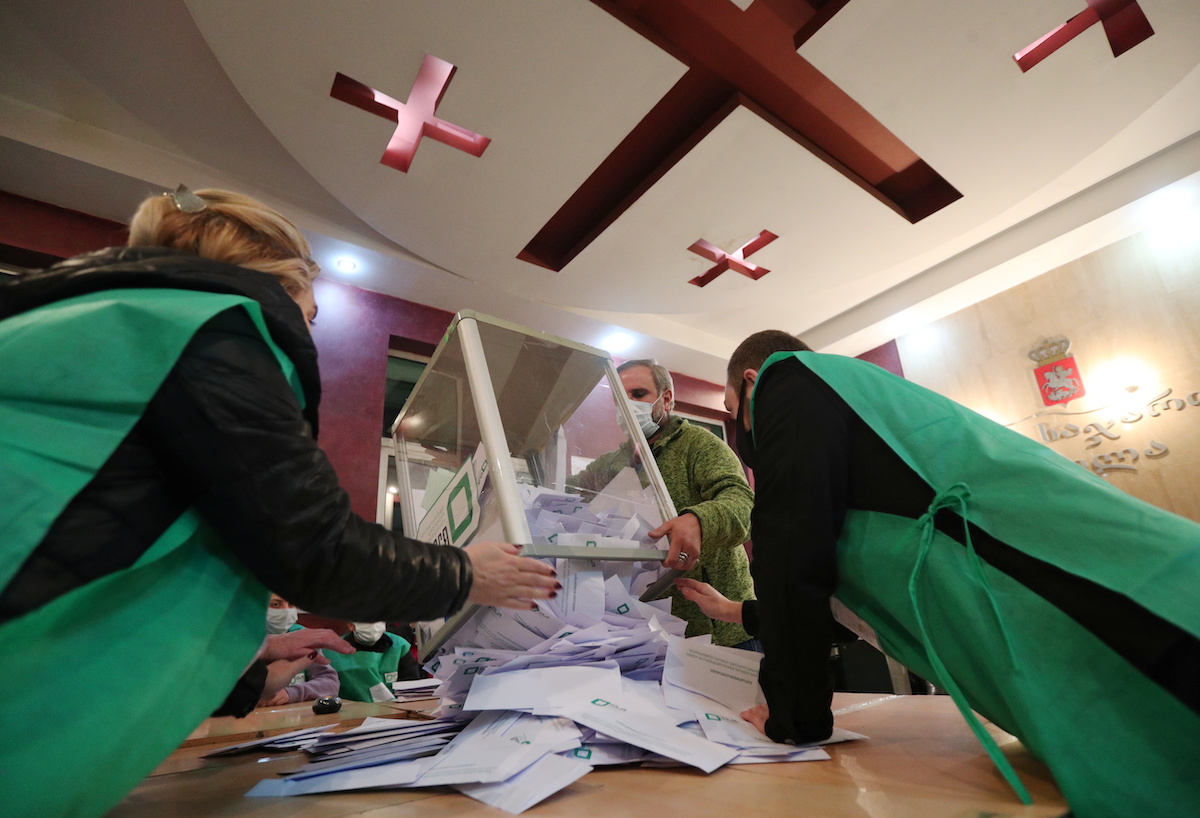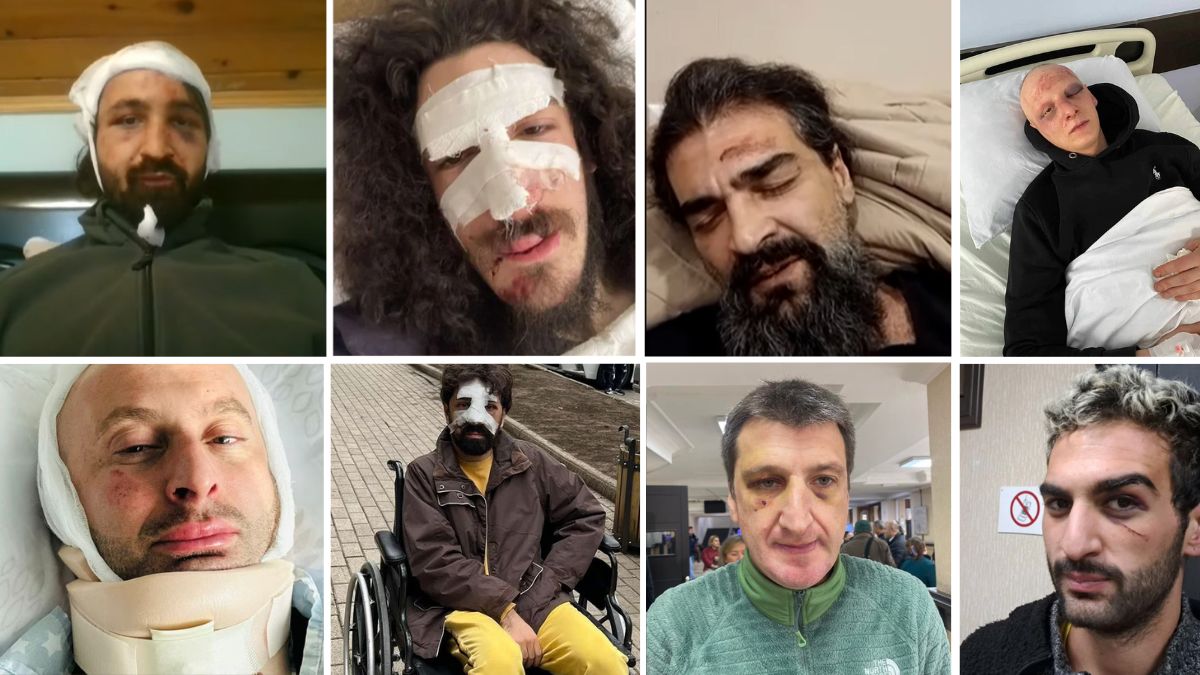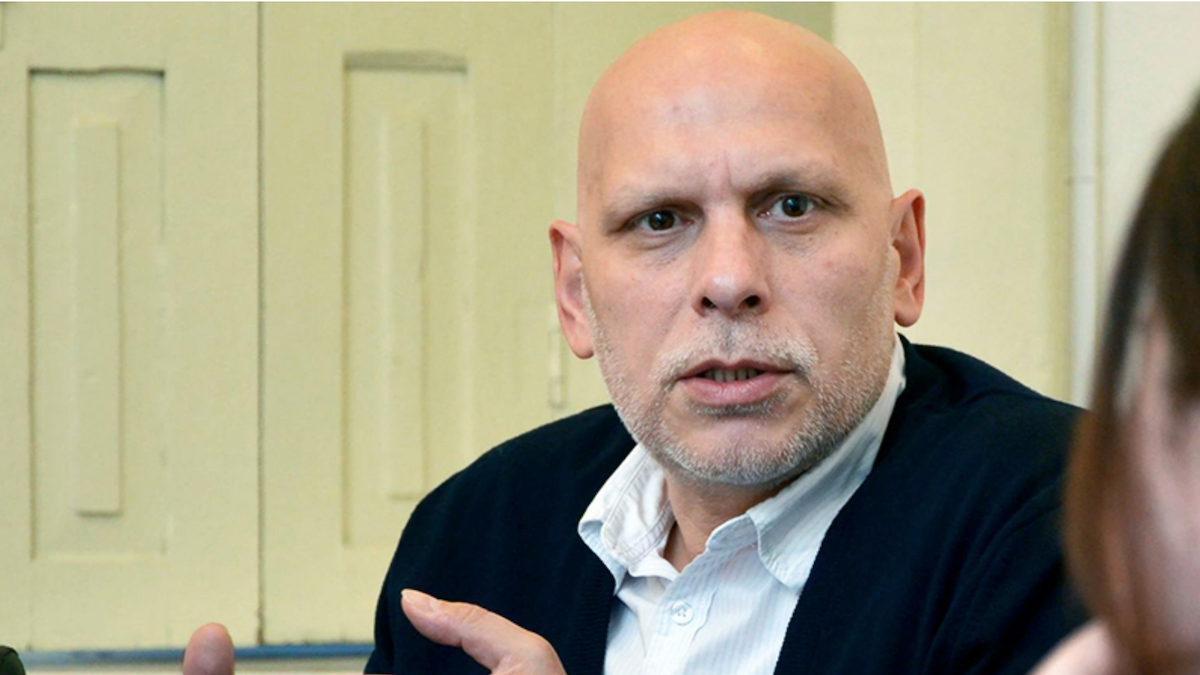Municipal elections in Georgia: is there a plan? Insights from opposition leaders
The opposition in Georgia’s municipal elections
Six months have passed since the October 2024 parliamentary elections in Georgia, but the political crisis in the country has not only failed to subside – it has deepened.
The opposition does not recognize the results of the October 26 parliamentary elections and considers the one-party parliament and the government it appointed to be illegitimate.
For the past six months, Georgia has been in a state of continuous protest. Demonstrators have two main demands:
- to hold new, fair parliamentary elections;
- to release “prisoners of conscience” — more than 50 people detained during the rallies.
Meanwhile, a new vote is approaching – in October of 2025, Georgia is scheduled to hold municipal (local government) elections.
This presents a chance for the authorities to bring political life back into the legal framework and, at the same time, sow division within the opposition.
However, whether the opposition will agree to participate in these elections remains one of the key questions – one to which opposition parties have no clear or unified answer.
And this uncertainty concerns not only political analysts, but also the protest electorate — the participants of the ongoing demonstrations in Tbilisi.
- This is a hostile document” – statement from the Georgian Dream-led parliament in response to the U.S. MEGOBARI Act
- Germany’s new government urges Georgian Dream to change its political course
There are many other questions related to the opposition. For example:
- Why are they not seen as part of the protest’s vanguard?
- What is their general stance on street protests?
- Will they be able to unite around a common goal, without any “buts” or preconditions?
To get clear positions on these issues, JAMnews sent the following three questions to each of the seven opposition parties and coalitions, asking them to respond in writing:
- Are you planning to take part in the municipal elections?
- Street protests: how do you see their future?
- Does the opposition have prospects for unity?
Five out of seven answered to the request. Two – the “Unity – United National Movement” coalition and the “Girchi” party – did not respond to the questions, despite repeated attempts to contact them through various channels.
So, in this article, you will find the responses from five political actors.
Are you planning to take part in the municipal elections?
QUESTION: Under what circumstances or conditions would you participate in the municipal elections? What compromises are you willing to make?
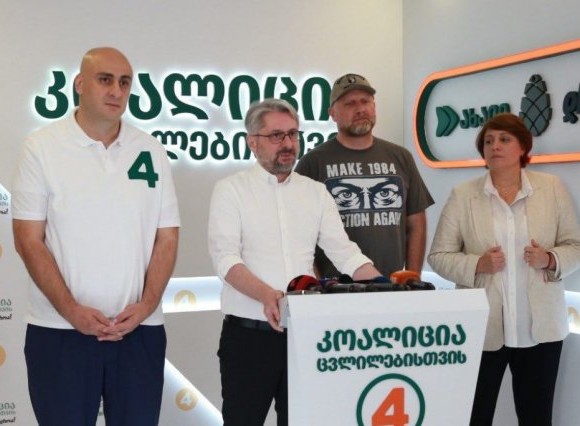
Coalition “For Change”: Will not participate
“As long as political prisoners are not released and new, free, and fair parliamentary elections are not scheduled, we will not participate in the municipal elections.
To defeat the regime and bring real change to the country, it is critically important for us to remain consistent and completely refuse any cooperation [with Georgian Dream].
Georgia needs change today, and to achieve it, both of these demands must be met. The release of political prisoners alone, without holding new elections, would only lead to new political prisoners in the future — we already have painful experience with this.
Without changes to the electoral rules, the current difficult electoral environment will not improve or become competitive. Georgian Dream’s one-party parliament hastily adopted amendments to the Election Code, specifically related to the municipal elections.
In fact, these amendments effectively stripped observers of their right to monitor the elections.
The Venice Commission stated that these amendments could negatively affect the fairness of the municipal elections and called for their withdrawal. That did not happen.
So, in summary, Georgian Dream has made the electoral environment for the upcoming municipal elections even more unfair, uncompetitive, and unfree.”
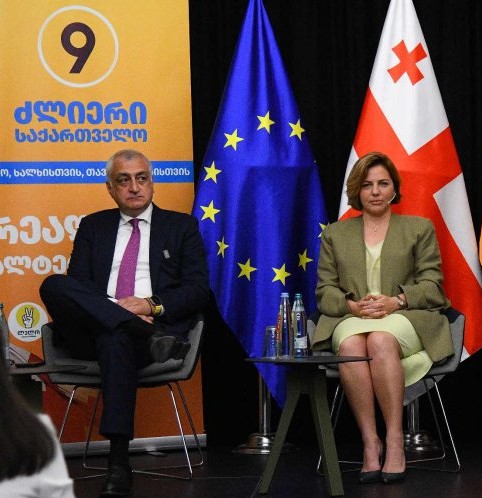
Coalition “Strong Georgia”: Did not provide a clear position
“We are fully focused on achieving new parliamentary elections and the release of political prisoners.
The country is currently experiencing a severe constitutional and political crisis. Power has been seized by an illegitimate group that forcibly changed the foreign policy direction.
Dozens of people are held unlawfully, hundreds have become victims of violence, and thousands have fallen victim to financial terrorism.
In such a situation, rebooting the political system requires the urgent holding of new parliamentary elections.”
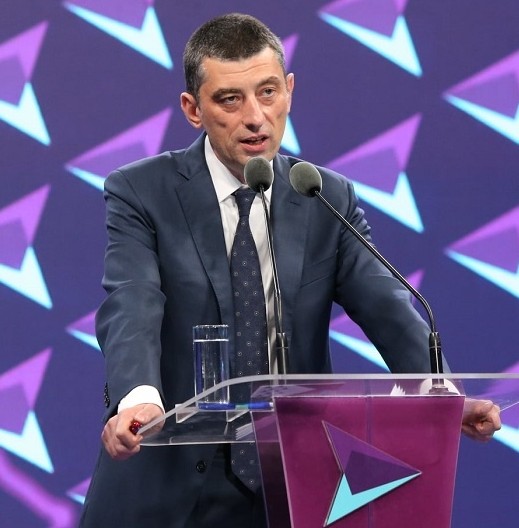
“For Georgia” (the party of former Prime Minister Giorgi Gakharia): Ready to participate
“In general, any party should be prepared for any elections. So our party is ready for the municipal elections.
Boycotting everything and everyone is foolish for a politician. In a situation of total boycott, there is no room for real politics.
The current political process is fluid; no one knows what the situation will be tomorrow, in two days, or in two months. Today, the main demand on the agenda is for new, fair parliamentary elections.
Our team is an independent and united political structure. We make decisions through consultations and analysis within the party, with our members and supporters.
And unlike other parties that say they will not participate in the municipal elections but have already started their election campaigns, we do not deceive our voters and consistently and honestly communicate our position.”
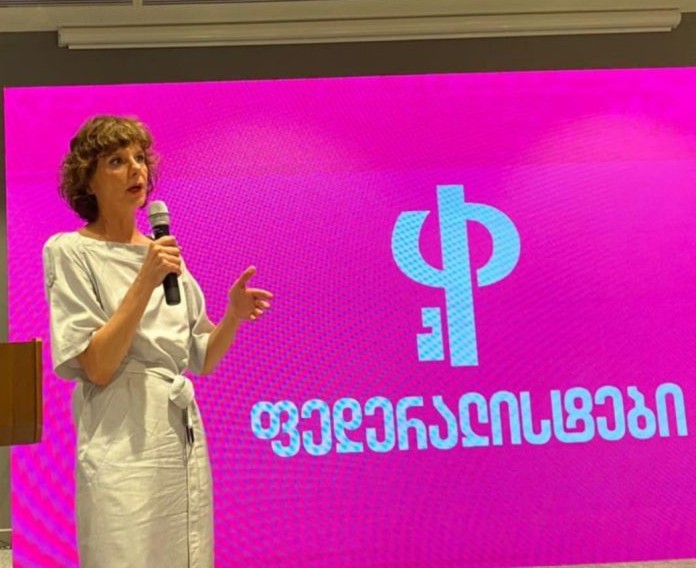
“Federalists” Party: May consider the possibility of participation
“While protests by Georgian citizens continue unabated, more than 50 political prisoners remain in jail, a total political purge is underway in state institutions, and legislation concerning civil and political freedoms is being tightened and diluted, municipal elections hold no significance.
We consider it our moral duty, above all, to do everything possible to achieve the demands of those citizens who have been gathering for many months in the center of Tbilisi — some of whom have even sacrificed their freedom for these demands.
Municipal elections will become relevant only if they remain the only real way to achieve the goals listed above. Only then do we intend to consider – I emphasize, consider – participating in these elections.
However, today we believe it is absolutely realistic to achieve a transfer of power through free and fair parliamentary elections.
Therefore, we believe that endless discussions about municipal elections serve no purpose other than the regime’s propaganda goals.”
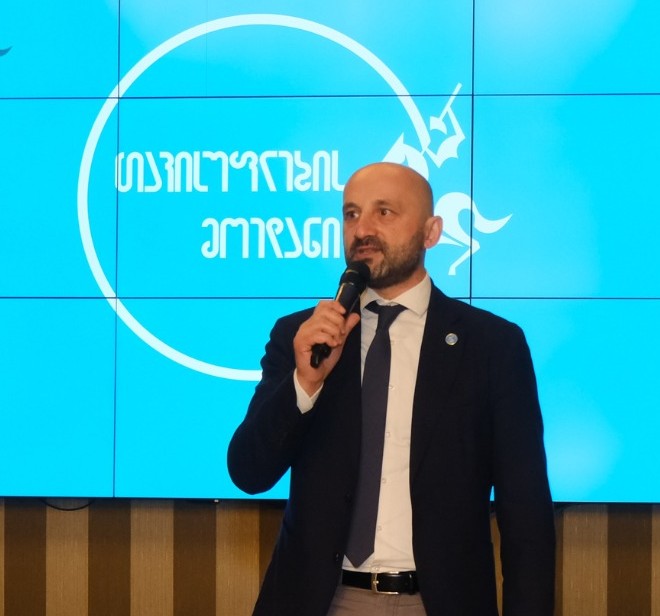
“Freedom Square” Party: Call for a total boycott of the municipal elections
“Our party believes that political actors and voters should declare a total boycott of the upcoming municipal elections if new parliamentary elections are not scheduled, political prisoners of conscience are not released, and the electoral environment does not improve in quality.
For the boycott to be successful, opposition parties and voters need to unite around it. ‘Freedom Square’ will under no circumstances break the general boycott. It is extremely important that the opposition’s decision on this issue is unified.
At the same time, a partial boycott—where part of the pro-European opposition participates in the elections and part does not—makes no sense. Such a scenario will harm the opposition and fuel the regime’s fire.
Coordinated actions of the opposition and citizens in the fight against the regime are a central issue, one more important than the decision on participation in the municipal elections.”
Street protests: how do you see their future?
QUESTION: Are you ready to mobilize your voters for street protests and hold ongoing rallies?

Coalition “For Change”:
“The street protests we have seen for nearly six months are unprecedented in the history of our country, but they clearly need to be expanded.
For this, it is important that more people see themselves in the protest, understand what they are losing under the rule of Georgian Dream, and what changes will bring them. That is why we have started active work in the regions.
It is also necessary and important to present an alternative — to introduce the public to the issues that we, the pro-Western political forces, take responsibility for and are willing to implement, which will ultimately improve the lives of Georgian citizens.”

Coalition “Strong Georgia”:
“Street protests are an extremely important component and must continue.
We believe it is important to strengthen existing forms of protest as well as create new ones, including in new locations.
Our coalition always participates in all protest actions across the country, including in the regions. We remain ready to actively take part in determined and peaceful protests nationwide.”
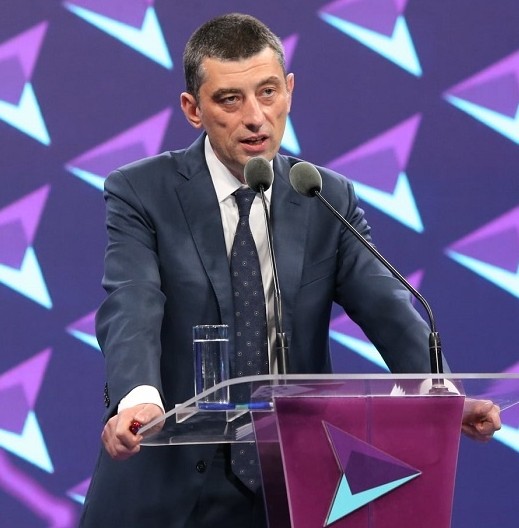
“For Georgia”:
“We believe that street protests should evolve into focused social protests.
A vivid example of this is the protest in the city of Chiatura, where leaders of our party went to show solidarity with the working people.
The process happening today in the center of Tbilisi seems to have become more ‘elitist’ and does not encompass the most vulnerable social groups.
To achieve real results, the protest must also highlight the real problems affecting every ordinary citizen of Georgia, such as economic issues, rising prices, low wages and pensions, drug addiction, and other social difficulties.
In this way, we can strengthen and broaden the protest.”

“Federalists”:
“Members of our party have taken part in the protests since day one. Throughout this time, we’ve observed the evolving dynamics of the street movement. To achieve its ultimate goal, the protest must grow – in numbers, in geographic reach, and in substance.
We believe that several large waves of protest still lie ahead. What matters now is offering a political alternative — so that the accumulated anger doesn’t fade away but transforms into political change. That requires building an alternative that gives people hope, optimism about change, and counters the fear — often fueled by regime propaganda — that citizens associate with transformation.
If we, as political parties, manage to offer such an alternative, the street protests will inevitably expand and channel their energy into real political shifts.”

“Freedom Square”:
“Our party consistently organizes and joins protest actions in Tbilisi and other cities. At a time when state institutions are being captured and the regime is moving toward dictatorship, the loud protest of free people and civil society is vital.
The protest must continue until its ultimate goals are met – the release of political prisoners, free elections, and regime change.
Street protests may vary in intensity, but they must be continuous. Defeating a consolidated autocracy through elections alone is unimaginable. In such a situation, the fate of democracy lies in the hands of every citizen.
Our party is ready for sustained protests, various forms of civil resistance, and strikes. The result of this process will be the weakening of the regime and its eventual collapse.”
Does the opposition have prospects for unity?
QUESTION: How do you envision opposition unity? If the opposition decides to take part in the elections, do you think there will be joint candidates for mayoral races in Georgia’s major cities?

“Coalition for Change”:
“Opposition unity and coordinated action are important, and we already have examples of success. Unity matters both in countering domestic propaganda and in engaging with international partners.
This approach has helped us achieve progress, for example, in expanding sanctions policy and advancing the policy of non-recognition.
Pro-Western parties should not fear losing their identity. In the fight against the Russian-style regime and for a European future, it’s essential to remember who your allies are – and who your opponents are.”

“Strong Georgia” coalition:
“We are absolutely confident that the opposition won the 2024 parliamentary elections. Four opposition parties and coalitions received more votes than Georgian Dream.
One of the key reasons this was possible was the smart structuring of the opposition — both politically and substantively. We offered voters of all preferences a comfortable way to choose the opposition.
Otherwise, a significant number of votes would have been lost.
That’s why we don’t believe merging the entire opposition into a single bloc is necessarily beneficial. On the contrary, polling shows it could even be harmful, given how fragmented the opposition electorate is. At the same time, we fully support coordinated efforts across the opposition.”

“For Georgia”:
“Any political alliance must be based on shared values and interests. Unity is not the goal in itself — the goal is to return the country to a democratic space.
The extreme polarization of Georgia’s political landscape was disrupted by the emergence of the ‘For Georgia’ party. Citizens deserve an alternative to both Georgian Dream and the United National Movement, as a large and growing number of people reject one and distrust the other.
Our party, drawing on its past, has the strongest access to Georgian Dream voters — for whom the UNM will never be an acceptable choice. We must engage with these people and not leave them alone in the hybrid war waged by Georgian Dream, which, unfortunately, is often effective.
As for cooperation, we work with all opposition forces on non-partisan issues, particularly on the release of political prisoners and the protection of Georgia’s European future through new elections.”

“Federalists”:
“Opposition unity is only possible around the goals of the ongoing protest — and only such unity can accelerate political change in the country.
It is important that the regime’s internal moral and external diplomatic isolation is accompanied by an alternative political process that supports the current goals of the protest movement.
The Federalists, along with other parties — but independently and without merging with them — are engaged in this substantive, bottom-up process. We see this as the key to overcoming the crisis.”

“Freedom Square”:
“It is important for the opposition to have a unified action strategy that ensures coordination and a common front of resistance. This should be the guiding principle when making key decisions, such as whether or not to participate in elections.
If the opposition does decide to take part in the municipal elections, it would be reasonable to agree on joint candidates for mayoral positions in major cities.
These candidates could be nonpartisan individuals who enjoy broad public trust. ‘Freedom Square’ will support efforts to build consensus, coordinate, and unite the opposition around common candidates to the extent that it contributes to the defeat of the regime.
Such cooperation does not mean artificially merging into a single organization, which would harm both the goal of dismantling the regime and the long-term development of political institutions.
Once the authoritarian regime steps down, democratic parties must continue to grow independently and compete with each other in a free electoral environment.”
News in Georgia










